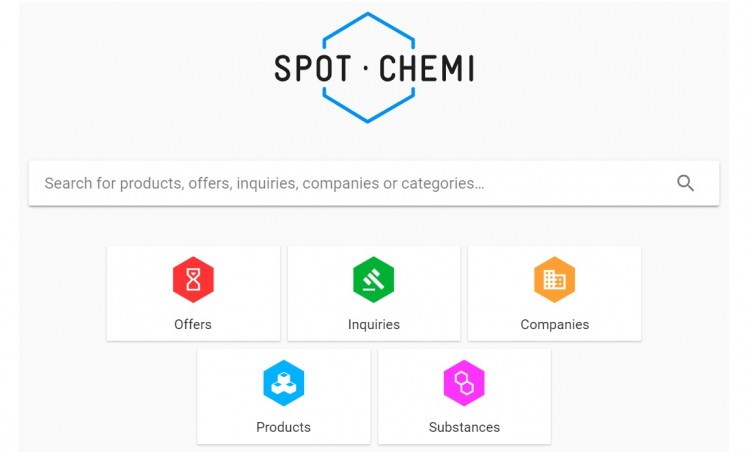There has been a spate of stories in recent months spreading fear of shortages of major chemical feedstocks. But how accurate are they? Fake news? Click Bait? A growing trend? Or simply a part of the natural economic cycle of supply and demand?
One of the most popular stories is the increased demand (and slow increase in supply) of cobalt, a metal used in modern batteries.
Cobalt Shortages
As the BBC reported in June 2018, companies searching for Cobalt deposits were causing a new form of gold rush. The report noting that, “In the past, cobalt supply depended on the markets for copper and nickel, more valuable metals that are typically extracted alongside cobalt. But with cobalt prices on the up and consumption projected to rise by between 8% to 10% a year, its status as a by-product has started to change.”
Chemical procurement officers will note, of course, that this story has been running for some time.
As demand for portable electronics has grown, so has demand for raw materials for batteries. At the same time, electric cars are on the verge of impacting the automobile industry, upping the pressure to source raw materials.
As such, the ‘Cobalt Shortage’ is less of a shock, but more of a long-term trend, well known among chemical industry suppliers. For example, even a year ago, in 2017, a different BBC report asked ‘Could you Cope with Smartphone Rationing?’, stating that, “[Cobalt] has become a crucial metal used in the batteries powering millions of tech gadgets, including the electric cars made by Tesla and others. The problem is, we can’t get enough of it.”
So, the news of supply shortages is in fact not news at all.
Carbon Dioxide Shortages
Another recent popular story was the carbon dioxide shortage that hit the UK a few months ago. Fortunately for the media, the shortage was timed with the FIFA World Cup and a hot summer spell that gave added fear of insufficient gas to give beer its bubble.
As the UK’s Daily Telegraph reported at the time, “Britain’s carbon dioxide shortage has been caused by an unusually high number of closures of the factories which produce the gas as a by-product of the fertiliser industry.
The process of manufacturing ammonia releases vast amounts of CO2, which is captured and sold commercially and on which the food and drinks industry depends. But because farmers need little fertiliser over the summer, ammonia plants often close down for essential maintenance, and the current crisis has been caused by too many plants shutting at the same time across Europe.”
Fortunately, England only made it as far as the World Cup semi-finals, and so there were no major crowd disturbances over the lack of fizz in consumers’ beer.
Research Chemicals Shortages
Another raw material challenge that rises occasionally is the demand for research chemicals.
While the search for a few grams of a chemical product may seem as insignificant as the amount of product, the rarity and obscurity of the chemicals required can make this a common supply problem, and one that requires
As one research chemist explained on the scientific website ChemistryWorld, when he told of the time when he, “… was working at an industrial R&D centre, where dozens of HPLC instruments were using litres of acetonitrile and water, when stocks of acetonitrile began to dwindle.”
At the same time, he describes how, “A hurricane in Texas then resulted in the shutdown of another manufacturing plant, kicking off a dramatic shortage of acetonitrile around the country and prices skyrocketed. In some cases, there was no acetonitrile available, no matter the price offered.”
Fortunately, the author tells how, “Heroically, the analytical manager developed a completely new set of HPLC conditions that used methanol and water. This won him praise and recognition – and allowed the data from those crucial instruments to flow unchecked.”
What is interesting in the anecdote, is the desperation in the author’s tone. Even though the event happened more than a decade ago and was resolved on time, the importance of just a few grams of acetonitrile is still felt. And the colleague who solved the problem (this time with a substitute substance and method) is labelled a hero!
The Emotion of Chemical Raw Material Sourcing
I think we can all sympathise with the drama in these situations. The BBC listener hearing that their mobile phone might be rationed, a hot and thirsty football fan being denied a glass of beer, or a research chemist having his experiments stopped, all were waiting on a delayed or limited supply of chemicals with a sense of helplessness and fear.
However, these levels of helplessness and fear are multiplied when there are delays or supply shortages for industrial chemical products. The stress, the panic, the desperate calling of old contacts to find anyone who can provide the necessary chemicals on time is a terrible train of emotion
So, what then for the raw material procurement officer, who is waiting for a delayed supply of a chemical or production will stop?
A Solution for Chemical Raw Material Sourcing
Today, beyond picking up the phone to search for replacement industrial chemical sources with old contacts, we have the Internet. A chemical purchaser’s dream that can make sourcing chemicals like shopping on Amazon.
But while Alibaba, ChemIndia, and other online trading websites offer a whirlwind blur of offers from far flung corners of the world, perhaps what is truly needed is a longer term trading portal for industrial chemical professionals.
At SPOTCHEMI, (who host this blog page) chemical companies provide offers to sell, can make enquiries to buy, can request information, specifications, and data sheets on any industrial chemical, can join forum discussions on chemical industry trends and challenges, promote their companies or chemical products, and can network with like-minded chemical industry professionals.
No one can totally avoid the emotion of industrial raw material supply chains, there are simply too many factors. But there is a way to smooth the ride!
You can read more insights into the chemical industry and chemical industry markets at the SPOTCHEMI blog page.
Photo credit: Freeimages


